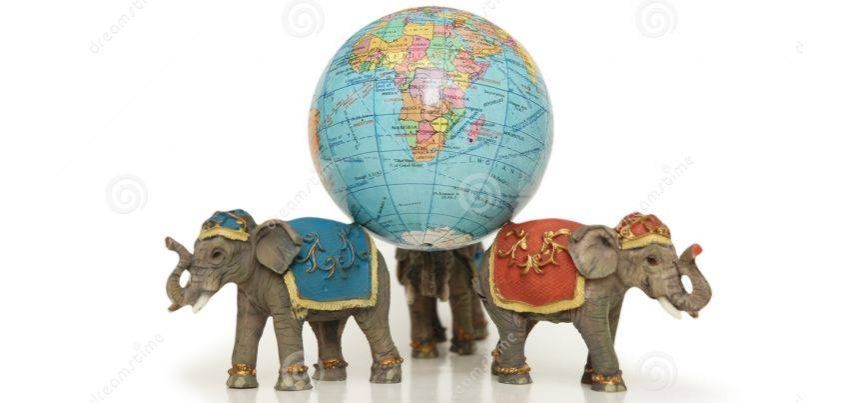 Today’s story is by A. B. “Banjo” Paterson, a famous Australian writer best known for his poems and stories about life in the countryside around the time of the country’s independence from Britain in 1900. Despite the title, this story has very little to do with elephants. It is about boys and their toys (men and their cars), and is a wonderful example of Australian ‘bush humor’. Part of the story is about the exploits of a speed-loving chauffeur named Henery, who tries to catch a car that has left the biggest set of tyre tracks he has ever seen.
Today’s story is by A. B. “Banjo” Paterson, a famous Australian writer best known for his poems and stories about life in the countryside around the time of the country’s independence from Britain in 1900. Despite the title, this story has very little to do with elephants. It is about boys and their toys (men and their cars), and is a wonderful example of Australian ‘bush humor’. Part of the story is about the exploits of a speed-loving chauffeur named Henery, who tries to catch a car that has left the biggest set of tyre tracks he has ever seen.
Original Text / PDF (2,764 words)
There are some uniquely Australian words and expressions in the story, as well as some words that have a different meaning to those normally found in American or British English.
In the story a chauffeur is taking a passenger on a 120 mile (193 kilometer) journey to the station. As well as its normal meanings, the word ‘station’ in Australia is used to refer to a very large sheep or cattle farm. A number of these are very big. At the time of writing, the largest is 24,000 km². This is bigger than some countries.
During the journey the driver tells the passenger the story of another chauffeur called Henery. He begins by saying that Henery was a bushwacker and had once been wood and water joey on a sheep station. These are Australian slang terms. In Australia and South Africa the term the bush is used to refer to wild land far from cities and towns. A ‘bushwacker’ is someone who was born in the bush, and a ‘wood and water joey’ is the lowest working position on a sheep or cattle station.
As they are traveling they see some men boiling a billy by the side of the road. Later they pass a girl carrying a billycan of water. A ‘billycan’ is a metal can used to heat water over a campfire. To say that someone is ‘boiling a billy’ means that they are heating water in it, usually to make coffee or tea.
At one point in the driver’s story, Henery stops to talk to two people by the side of the road. He calls them yokels, which is a term used to make fun of someone from the bush who is not well educated and knows little about the world and city life.